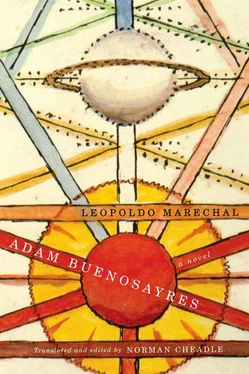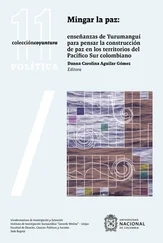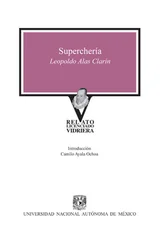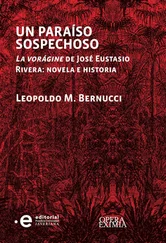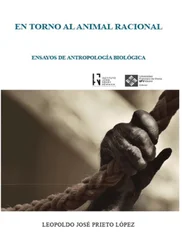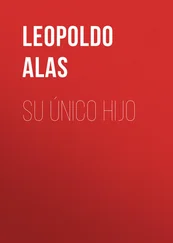His mounting exultation multiplied my shame:
— Lunatic, lunatic! I shouted at him. I was reading the Flos Sanctorum at the time… 113
But Fra Darius would not be quiet:
— I fled the cabin! And through the wilderness I ran, the night sky above unfurling its great corymb of stars. An infinite elation coursed through my blood. Miracle! I, Fra Darius, had just performed a miracle! I ran, I flew over the wilderness. A miracle! All avenues of heaven opened before me now, and I heard angelic voices calling from on high: “Darius! It’s our brother Darius!”
— Lunatic! I shouted again.
— All of a sudden, he said, the night was rent by laughter, an immense, diabolical, terrible guffaw. I stopped short, petrified. The euphoria fell away from my soul like a dirty garment. I felt something within me was collapsing, clamorously, catastrophically, and I sensed it was the ridiculous, haughty, despicable cathedral of my pride. Then I flew to the fen and plunged my eyes, nose, mouth, and ears into the foul mire, not without first begging the mire to forgive me the insult. And then…
I listened no more. Putting my index fingers over my ears, I turned my back on Brother Darius and charged against the last Potentials, who gave way like a field of wheat. When I raised my head, the astrologer Schultz and I were passing through the open portal.
X
Later, going over in memory my entire journey through Schultz’s Helicoid, I told myself no other incident had so vexed me as the battle with the Potentials, not even my subsequent encounter with Samuel Tesler, in the Hell of Pride, when I had to solve the fiendishly tricky riddle of his Chinese kimono. It’s quite logical, then, that when we left the fifth spiral of the Helicoid a sort of rancorous humiliation came over me, which translated into thoughts not at all benevolent about the astrologer Schultz, then into a boundless anger against all those wits who, displaying an arrogance both absurd and malicious, had ever dared to cobble together a literary Inferno. Poking their noses into other people’s lives, washing their dirty laundry in public, conducting a moral autopsy on their neighbours and making them sweat in violent infernal sports: all these seemed to me exercises which, contravening the sweet laws of mercy, betrayed a limitless wickedness. “To be sure,” I reflected, “when faced with the human disfigurations stemming from the first injustice, man ought to respond only with compassion or laughter: compassion, in the literal sense that we should suffer with the creatures resembling us in form and destiny; or laughter, provided that it be another image of compassion. By putting on a false halo, brandishing feeble brassy thunderbolts, and parodying God’s handling of the scales of justice, one risks falling into sacrilege and getting jeered at by the peanut gallery.” Moreover, I was worried about how menacing our journey was becoming as we went deeper and deeper into the Helicoid. Each new infernal circle held more numerous difficulties, becoming less disciplined, more excessively unruly and argumentative. I wondered if all those entities convoked by the astrologer might not end up staging a revolt and scaring the living daylights out of us.
Fortunately, the sixth spiral quite calmed me down, for it amounted only to a simple panoramic vision. True, my ears still ring with the disagreeable thud of oars knocking the skulls of those who dared raise their heads. But, for the rest, we crossed the melancholy water without incident, notwithstanding “the voice that let itself be heard between two muddy slurps.” Schultz and I were passing through a gallery, he in silence and I deep in bitter rumination, when suddenly, just as we rounded a bend, the sixth circle hove into view. The passage to the Hell of Envy was blocked neither by door nor wall nor hieroglyph nor guardian, perhaps in order to indicate how easily that passion can slip into one’s soul; or maybe (and most likely) as a result of Schultz’s innate aversion to symmetry and reiteration. The whole infernal area seemed to suggest a contrast between sky and earth, between organization and chaos. Above, in the darkness of a very good imitation of night, celestial spheres were spinning on their axes as they orbited around green, blue, and pink suns. But they were racing and whirling with the artificial speed of a Planetarium, each of them producing as it rotated its own musical buzz, which joined the tones of the other spheres in a furious chord that sounded like a swarm of irritated wasps. Below, completely covering the ground, there extended a marshy lagoon similar to those I’d seen in the prairies of the south, between Segurola and the sea, where I had often gone hunting otters and fishing for sharp-toothed dientudos . It was a patchwork of clearings of open water, here shimmering mirror-like, there ferruginous with algae, thickets of reeds, and islands of lilypads. The navigable surface of the marsh was being plied by flat-bottomed boats, whose crews seemed busy with some task I couldn’t make out right away.
Only when Schultz led me down to a wooden wharf did I catch a glimpse of what was going on. The light of the rotating spheres, waxing and waning as in the lunar cycle, alternately revealed and hid fragments of the lake’s quite agitated world. Then I saw the entire lagoon was a seething hatchery of men and women: they swam in the muddy water like otters, their noses cutting the surface of the water at the vertices of triangular wakes flairing out behind them. They were groaning with dissatifaction or cavorting in amphibious somersaults, revealing flashes of buttocks, thighs, and breasts, all a-glint with slime. At the same time the job of the crews manning the boats became clear to me: as soon as a head popped up over the water’s surface, whether inadvertently or deliberately, the nearest boat shot over like an arrow, and the crew brought their oars down on the rebellious head with a thud of broken bone, making it disappear beneath the surface. “Keep your head down!” was no doubt the watchword in that hell.
As I was stringing together these observations, the astrologer Schultz had been exchanging a series of shouts and signs with the two crewmen of a boat moored not far from the shore. Schultz, evidently, was commanding or beckoning them over to the wharf we were standing on. But the boatmen showed no sign of obeying. Seeing this, the astrologer started to insult them violently, unleashing a string of esoteric epithets that concluded with the wingèd and very musical putifilios . 114That word must have had some magical meaning, for when the oarsmen heard it, they overcame their natural resistance and headed our way. Once the boat was tied up at the wharf, one of the men rudely demanded:
— So what’s eating you?
— Nothing, answered Schultz. We want to cross the lagoon.
The two boatmen guffawed sarcastically, as if they found the astrologer’s request hilariously outrageous. The one in the stern held a long pole, the boat’s means of locomation; the one in the bow raised a dripping oar whose sole purpose, as we already know, was to bonk rebellious craniums. Both of them, clad only in loincloths, were unspeakably thin; their liverish faces were drawn, their foreheads bitter, their eyes searing within dark hollows dug out by resentment.
— Cross the lagoon! said the man with the oar, still snickering, as though answering a child who had just asked for the moon.
— Sure, added the man with the pole. And Daddy’s gonna bring you home a nice pony, too.
— Listen, you sons of a beehive! thundered Schultz. Do you know who you’re talking to? Has egalitarian pride so blinded you that you can’t even recognize the Neogogue?
Although the man with the pole kept on laughing, the one with the oar seemed to waver for a moment. He turned to the astrologer and pointed at the planetarium:
Читать дальше
